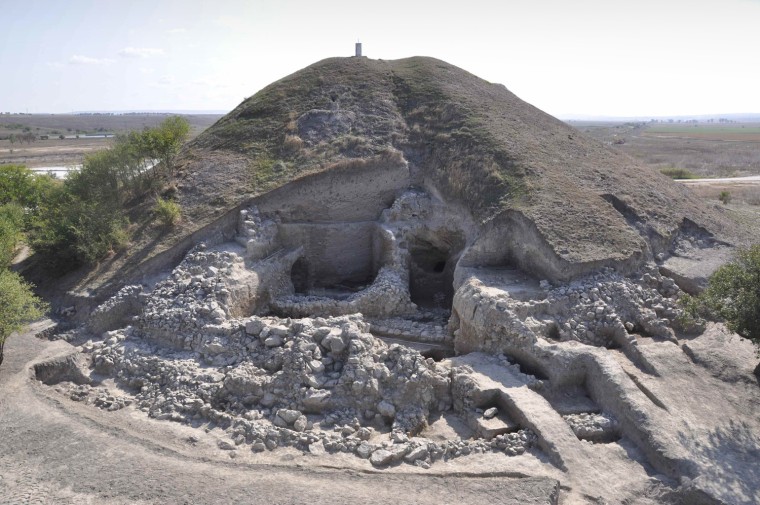A prehistoric town unearthed in eastern Bulgaria is the oldest urban settlement found to date in Europe, a Bulgarian archaeologist said Thursday.
Vasil Nikolov, a professor from Bulgaria's National Institute of Archaeology, said the stone walls excavated by his team near the town of Provadia are estimated to date between 4700 and 4200 B.C. He said the walls, which are 6 feet (3 meters) high and 4.5 feet (2 meters) thick, are believed to be the earliest and most massive fortifications from Europe's prehistory.
"We started excavation work in 2005, but only after this archaeological season did we gather enough evidence to back up this claim," Nikolov told The Associated Press.
The team has so far unearthed remains of a settlement of two-story houses with a diameter of about 300 feet (100 meters), encircled by a fortified wall.
Excavations have also uncovered a series of pits used for rituals as well as parts of a gate. Nikolov said carbon analysis has dated them to the Chalcolithic age — more than a millennium before the start of the ancient Greek civilization.
"New samples of the excavations have been sent to the University of Cologne, Germany, for further evaluation," Nikolov said.
Bulgaria, a Balkan country of 7.3 million, hosts numerous Neolithic, Chalcolithic and Bronze Age settlement mounds as well as significant remains of Hellenistic, Roman and Byzantine urban centers.
Nikolov said the settlement near Provadia was home to about 350 people who probably produced salt from the nearby rock-salt deposits.
"They boiled brine from salt springs in kilns, baked it into bricks, which were then exchanged for other commodities with neighboring tribes," Nikolov said, citing as possible evidence the gold and copper jewelry and artifacts that have been unearthed in the region.
The most valuable is a collection of 3,000 gold pieces unearthed 40 years ago near the Black Sea city of Varna. It is believed to be the oldest gold treasure in the world.
"For millenniums, salt was one of the most valued commodities, salt was the money," Nikolov said adding that this explained the massive stone walls meant to keep the salt safe.
The two-story houses, as well as the copper needles and pottery found in graves at the site, suggest a community of wealthy people whose work was probably the once-lucrative production of salt.
Nikolov expects more finds next summer when his team returns, but he complained about inadequate government funding.
"We wouldn't be able to continue without private donations," Nikolov said, naming the New York-based Gipson Foundation, which provided most of the funds for this year's excavation.
More about Bulgarian archaeology:
